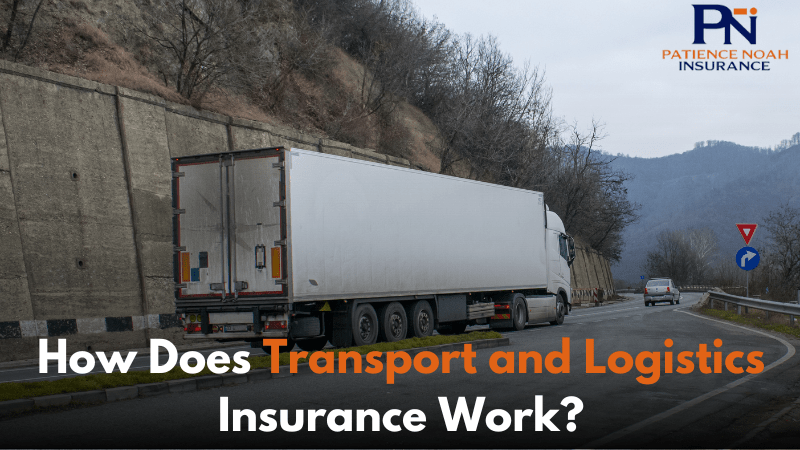In the fast-paced world of transportation and logistics, keeping your goods safe and having the right insurance is very important. Whether your goods are transported by a couple of vans or big trucks, safeguarding your assets is an utmost priority for businesses. Regardless of the mode of transport, something needs to be fixed. A truck crash or vehicle breakdown could damage the goods. However, insurance protects businesses from costly problems. Certain insurances cover specific situations.
In this blog post, we will discuss transport and logistics insurance. We will explain its importance, the types of insurance available, and the risks to consider when choosing a specific company.
How Does Transport and Logistics Insurance Companies?
Insurance is essential for businesses in the logistics industry. It helps companies to save money if something goes wrong in their supply chains. With insurance, businesses can keep running smoothly without any worries. Having good insurance also makes logistics services more dependable. Customers and partners trust companies with proper insurance coverage. This improves the company’s reputation in the logistics industry.
Reduce the Severity of Monetary Risk
Getting insurance helps companies deal with problems more efficiently. It lets them work without worrying too much about risks or accidents. Having insurance for transport and logistics acts like a safety net, protecting companies financially if something unexpected happens.
Client’s Trust
Being fully insured implies that you prioritize customer safety. This builds trust with clients and portrays you as a reliable shipping ally.
Follow the Rules and Regulations
Having insurance for transport and logistics protects you and builds healthy companionship with your company. You need insurance to work legally. It shields you from problems.
Types of Coverages Under Transportation and Logistics Insurance
Cargo Insurance
Cargo insurance protects goods being transferred. It shields against potential loss, damage, or theft. The insurance is responsible for the carrier and the shipper. Any loss that may occur during transportation is financially covered. It is very beneficial as it helps mitigate the risks transportation companies face. Therefore, adequate insurance must always be in place.
Liability Insurance
Liability insurance safeguards companies and individuals from financial loss if an accident results in bodily harm or property destruction. It serves as a fundamental layer of protection. Transportation often inherently carries risk. Regardless of pre-emptive measures undertaken, mishaps can happen.
Liability insurance enables prompt refund for medical expenses, repairs, or legal fees if found guilty of damages incurred by others during operations. This mitigates severe financial consequences and provides peace of mind.
Commercial Auto Insurance
This particular type of insurance shields transportation companies against accidents, damages, and legal responsibilities linked to using their commercial vehicles on the roads.
Commercial vehicle insurance is required to protect businesses against accidents, property damage, or injury to personal belongings.
The policy protects the company’s assets and resources if any unfortunate incidents happen while their vehicles are used for business operations.
Imagine your delivery van collides with another car at an intersection. Without commercial auto insurance, the vehicle repair expenses and any medical bills would come straight out of your company’s pocket. But with this policy in place, your insurer takes care of those costs instead of draining your funds.
Risks Faced by Transport and Logistics Companies
Things can go wrong when moving goods from one place to another. Companies that transport items face many risks. Significant risks include catastrophes, technical issues, robbery, accidents, and cyber attacks. The following are some of the risks that can affect significantly if not dealt with properly:
Hacking and Information Leak
Hackers or information leaks constantly threaten the transport and logistics industry. These events can stop work, expose secret data, and cause financial loss.
Lack of Workers
More skilled workers can impact work quality and output. Attracting and keeping talent is essential for long-term success.
Supply Chain or Delivering Failure
Any issues in the supply chain or delivery network can result in delays, stock shortages, and customer trouble.
Catastrophic situations
Breaks caused by natural disasters, accidents, or other unexpected happenings can stop work, causing money loss and impacting supply chains.
Wrap Up
In summary, comprehensive insurance coverage is not just a legal necessity but a crucial strategic move to safeguard assets for businesses in the transportation and logistics industry.















